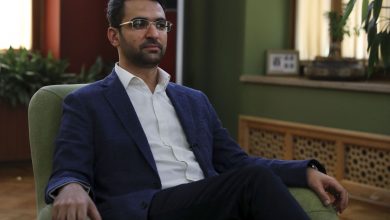Need to bridge gap between Arab, international scientific research stressed

Author: Wed, 2018-11-07 00:36
RIYADH: In a call for the implementation of an integrated framework that paves the way for scientific research leading to sustainable development in the region, panelists at the Asbar World Forum (AWF-2018) in Riyadh this week pointed that it is time to bridge the huge gap between Arab and international scientific research and development.
They were speaking on the concluding day of the forum on Tuesday in a panel discu wellbeing ssion on the 10th Arab Report on Cultural Development issued by the Arab Thought Foundation (ATF) under the title “Innovation or extinction, scientific research in the Arab world: Realities, challenges and perspectives.”
Referring to the gap in scientific research and developments, Henri Awit, ATF director general, said the annual report indicates that Arab countries face shortcomings in scientific research and technological advancements and are still behind the developing countries.
He said the report recommendations ask for collaboration between the public and the private sector which will help usher in a new era of scientific developments. He also highlighted the role of women in this field.
Advocating bridging the gap, Emad Eldin Adeeb, a writer and journalist, said scientific development is necessary to achieve critical thinking and for innovative work.
Scientific research, technological advancement and innovation are necessary for sustainable development, he added.
Ziad Al-Drees, former permanent delegate of Saudi Arabia to UNESCO, pointed to the need for practical experience, for a knowledge-based society that generates, disseminates and invests in knowledge to support the well-being of its people as well as prepare its youth.
Saud Kateb, undersecretary for public diplomacy at the Ministry of Foreign Affairs, said as the Arab countries trail behind European countries, we need to speed up the pace of scientific works to bridge the gap.
He added that the report significantly contributes to a scientific base of knowledge, data and statistics in various scientific fields and the recommendations will help in bridging the gap through its monitoring of scientific research and development in Arab countries.
Another session moderated by Ibraheem Alzuhimeel, CEO of Oceanx, outlined strategies and objectives of Young Investment Funds, achieving investment benefits in the context of limited resources, new methods of management for investment funds and the supporting system of the investment funds.
The Asbar World Forum launched last Sunday. Riyadh Gov. Prince Faisal bin Bandar was there in the opening ceremony along with a number of ambassadors from Saudi Arabia, and officials from the public and private sectors.
The forum lasted for three days from Nov. 4 to 6, with 90 speakers from 17 countries around the world. The forum organized an exhibition titled “From Innovation to Influence” in collaboration with King Abdulaziz University of Science and Technology (KAUST). The exhibition reflected KAUSTs efforts to develop and foster a welcoming environment that supports entrepreneurs, people with skills and promising ideas from the national youth.
On day three, the forum discussed the environment in the future in a panel discussion moderated by Dr. Abdulrahman Al-Ibrahim, adviser to the president of KAUST.
During the discussion, Muhab Benten, director general of the building technology stimulus initiative at the Ministry of Housing, discussed the idea of innovation in building techniques. He said: “Building a house is considered an obsession for each individual, and it may be difficult to do so. We need electronic procedures that facilitate and ease everything related to construction for individuals.”
He added: “Yesterday, the Eskan Program and the National Industrial Development and Logistics Program announced their success in building the first home construction experience using three-dimensional printing technology in Saudi Arabia.”
Dr. Saeed Al-Amoudy, who has a Ph.D. in creative cities from the University of Salford in England, talked about the future for creative cities: A combination between city imaging, quality of life and creativity. Al-Amoudy also mentioned some of the creative cities in the future such as Paris, London and New York. Surprisingly, Makkah is expected to be one of the future creative cities.
“Innovation in the services provided in Makkah makes it one of the most important cities in the future. And technology is one of the most important reasons to make Saudi regions creative,” he added.
Dr. Ali Alazzawi, city experience adviser from Smart Dubai Office, and Abdulkader Lamaa, associate partner at McKinsey & Company, asserted that cities are not only buildings and roads, but also individuals, people, and societies, and that smart cities have a holistic vision, not fragmented, disconnected visions.
While debating energy in the future and how it can be preserved, Dr. Mohammad Al-Sabban, former chief economist adviser to the Minister of Petroleum and Mineral Resources, said: “It is expected that in 2040, 300 million electric cars will be used.”
Dr. Ammar Al Nahawi, Director of Saudi Aramco Research & Development Center, said technology contributes to the sustainability of energy and this is what the Kingdom is trying to reach in 2030.
Main category: Saudi ArabiaTags: Saudi ArabiaMiddle Eastscientific resaerch Crown Prince launches project to build Saudi Arabias first nuclear research reactorSaudi graduates urged to turn ideas into investment projects
[contf]
[contfnew]

Arab News
[contfnewc]
[contfnewc]




